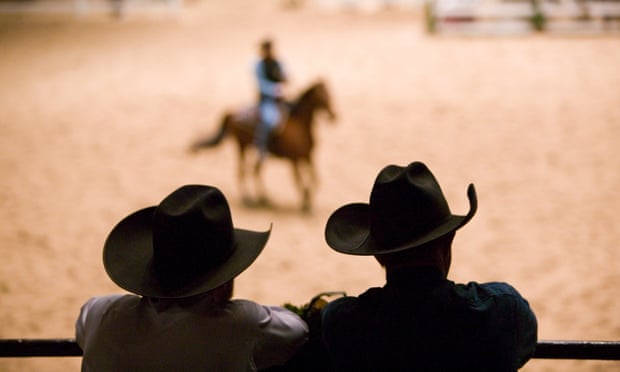
Posted on 02/10/2016 1:48:23 PM PST by SkyPilot

'People speak to machines differently than how they speak to people,' says language technology expert Alan Black.
It was a simple enough question, at least in this part of the world.
"How can we mosey on down to the rodeo?" my friend Ben Crook drawled, sat in a rocking chair on his front porch, a can of Lone Star beer in his left hand on a humid night in Houston.
Only one thing jarred with this otherwise stereotypical Texas scene: Crook was asking Siri, the voice-activated digital personal assistant on his iPhone, rather than, say, a passing sheriff on horseback with a cowboy hat wider than the Buffalo Bayou.
Siri understood the individual words but didn't know how to respond. But Crook had other questions. He was hungry; heck, so hungry he coulda eaten the north end of a southbound billy goat.
"We're fixin' to eat brisket, where should we go?" he asked Siri. She offered a list of 15 restaurants - though not all appeared to serve Texas barbecue. Siri was also helpful when asked where to find crawfish, but baffled about kolaches, the pastries of central European origin that are hugely popular in Texas, calling them "Colotchies".
Meanwhile, though the free Dragon dictation app performed admirably when fed lines from the 2004 movie The Alamo, it did turn "Davy Crockett feller" into "David Rockefeller", and evoking a family of Yankee industrialists is no way to describe a hero of the battle for Texas independence.
The upshot of this brief and decidedly unscientific experiment is that Siri is at her best when addressed in standard English, with accents toned down and slang avoided where possible.
(Excerpt) Read more at theguardian.com ...
Siri’s a yankee. ;)
Absolutely, she could have found me a bagel with lox, but no chicken fried steak.
ru4liberty <-—— Since ‘47, kids. ;)
(Missed ‘46 by >17 hours)
Well put! I lived in Southern California for several years, and I clearly remember the double-take my fiancé's best friend did when, to his amazement, the gal with the Southern drawl said something clever and intelligent upon our first meeting. He eventually got used to me and my "hick" drawl, but it was a process for him (a New York Jew).
I submit to you that part of the reason those Californians spoke using clipped words is because so many of them actually are from "back east" (as it was called in California; here in Texas, we call it "up north").
BTW, that's an impressive ancestry you're sporting on your profile page. My ancestors also came from Germany through Galveston, but that wasn't until later in the century. They stayed in Galveston -- a decision that cost them dearly in September 1900 when the worst natural disaster in U.S. history hit the island.
Disclaimer: Opinions posted on Free Republic are those of the individual posters and do not necessarily represent the opinion of Free Republic or its management. All materials posted herein are protected by copyright law and the exemption for fair use of copyrighted works.